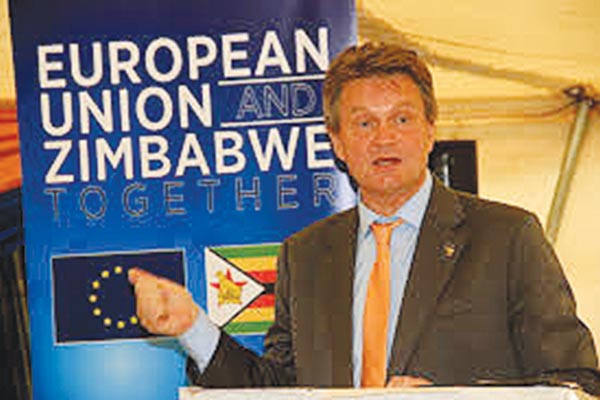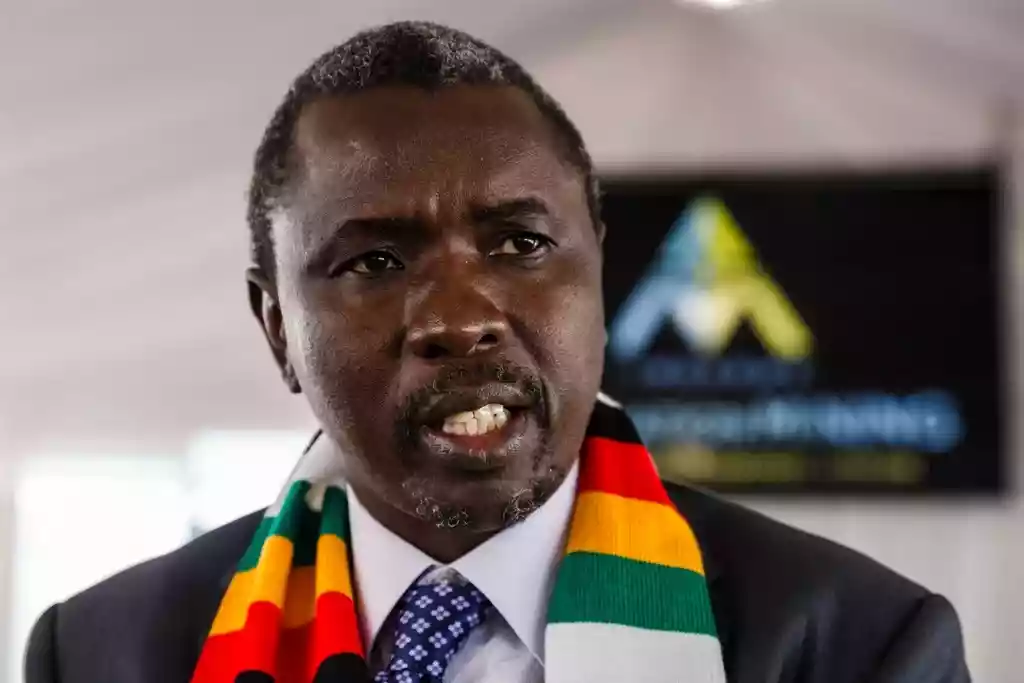

BY OBEY MANAYITI
THE European Union (EU) on Monday said it would not ignore human rights violations in Zimbabwe and warned government that further violations were destroying goodwill and a setback to the country’s recovery efforts.
Speaking at a Misa-Zimbabwe-organised Quill Club discussion in Harare, EU ambassador to Zimbabwe Timo Olkkonen said human rights issues needed to be prioritised because they have a bearing on the country’s record.
“The violations of the past have been difficult for our relationship, the human rights violations,” Olkkonen said.
“Again the events in August were a setback because during the elections there were a number of flaws and I am not saying they were perfect, but had gone quite easily and the violence was a setback.
“Then again the events in January were quite a bit of a shock and the fact that we need to continue discussing and addressing these issues, I will not say, for example, addressing and condemning these issues will be putting the bar very high for Zimbabwe. I think the events will need to be addressed.”
Zimbabwe had an opportunity to reform after the removal of former leader Robert Mugabe in November 2017, but just like the old administration, President Emmerson Mnangagwa’s regime has been dogged by gross human rights violations. The notable violations were the August 1, 2018 post-election shootings, which claimed the lives of six people while in January this year, at least 18 people were shot dead by soldiers in a violent crackdown on protests against fuel price hikes.
The EU ambassador said concern has been raised that human rights violations were also happening in Europe, particularly France where there are yellow vest demonstrations.
- Chamisa under fire over US$120K donation
- Mavhunga puts DeMbare into Chibuku quarterfinals
- Pension funds bet on Cabora Bassa oilfields
- Councils defy govt fire tender directive
Keep Reading
But the top EU diplomat emphasised that the issue must not be used to hush discussions on the rights violations in Zimbabwe.
He said if African ambassadors in Europe were concerned about the alleged violations in that region, they were free to take up the issue.
Olkkonen said the principle of dialogue between Zimbabwe and the EU must continue in earnest, but emphasised the bloc will not turn a blind eye on significant issues, including gross human rights violations, which can potentially damage the country’s reputation.
The EU ambassador also said he was optimistic that the media space will open up. He also talked about the proposed repeal of the Access to Information and Protection of Privacy Act as the war on democratisation of media intensifies and bringing in another set of Bills which he said must be in sync with the Constitution.
Olkkonen, however, noted that the EU will not dictate what Zimbabweans must do in the national dialogue, but applauded what other institutions such as churches were doing to bring the warring political players together.
He said dialogue was important for Zimbabwe which is deeply divided along political lines.
Zimbabwe was a divided nation that needed to find each other and the establishment of the National Peace and Reconciliation Commission is a step in the right direction to resolve some pertinent issues in the country, he underscored, adding that the Europeans supported the dialogue, but will not prescribe how the negotiations should proceed.
“We are very supportive, but again not prescribing. The EU’s role in this dialogue is more of a well-wisher. It’s not like we will be there telling each party what to do and what to say, no, because it has to be sustainable for it to be successful. Obviously, it has to be a Zimbabwean process,” Olkkonen said.











